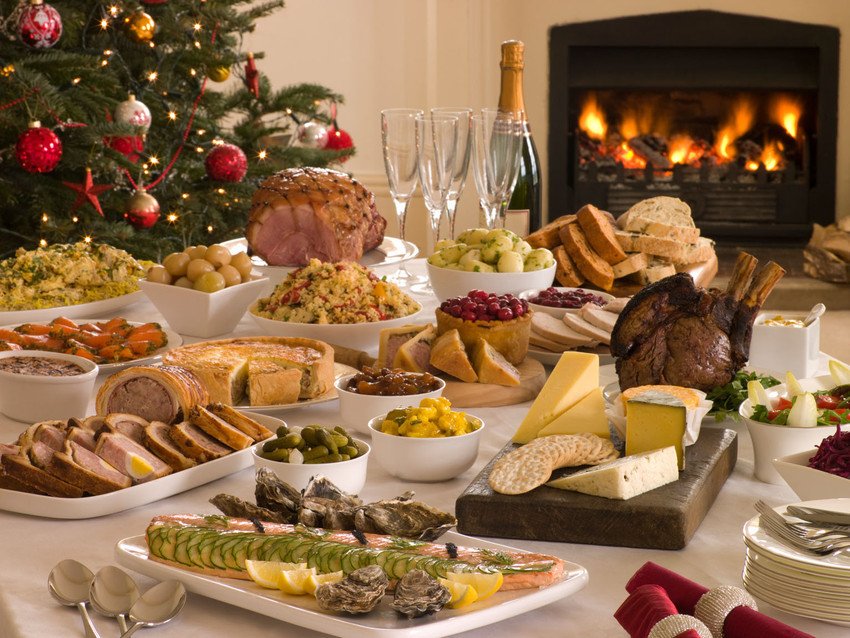Holiday Health Guide : 5 Easy Ways to Kickstart Your Clean-Eating Goals Before January 1st
December 22 2017Step away from the sugar cookies—and use these totally doable tips to ease into a healthier routine.

Many people refer to the days between Christmas and New Year’s as a “twilight week.” The bulk of the holiday season is behind us, but the fresh start of the new year still lies ahead. It’s tempting to consider this cozy in-between time as your last hurrah before January 1st. But indulging freely in wine and snacking on leftover sugar cookies likely won’t leave you feeling your best! Instead, why not use this week to ease into a healthier routine? By the time 2018 rolls around, you’ll be off to a running start with your goals—whether you’re aiming to slim down or simply eat more mindfully. Here are five completely doable strategies to focus on, to get your wellness back on track.
Re-think that drink
Alcohol is the number one factor that impacts our eating choices and energy levels. In addition to being caloric, alcohol can act as an appetite stimulant and lower your inhibitions. This combo often results in eating foods you typically skip when sober, and noshing more overall. Then there’s the next day lack of energy, which can lead to being less active and choosing comfort foods for breakfast (like a sugary muffin, greasy breakfast sandwich, or bagel with cream cheese).
This week, commit to curbing your alcohol consumption. Volunteer to be the designated driver, and have sparkling water while others imbibe. Plan activities with friends and family that don’t revolve around drinking. Or try doing activities like bowling or a Netflix marathon without sipping alcohol. Even if you toss back a few drinks on New Year’s Eve, you’ll feel a lot better on January 1st if the previous week has been primarily dry.
Up your H2O
In addition to supporting optimal metabolism, water tends to naturally curb appetite, meaning you may be less apt to nibble on the holiday goodies still floating around. Upping your H2O intake also flushes out excess sodium, which can help you de-bloat, and get your digestive system moving. If you’ve been eating fewer veggies and more carbs than usual, this change can be especially effective for helping you feel lighter and more energetic.
In the days ahead, make water your beverage of choice, and aim for 2-2.5 liters a day (about 8-10 cups). If you dislike it plain, infuse it with fruits, veggies, herbs, and spices to boost flavor and add antioxidants. This one simple change can create a domino effect that spills over into other areas of your personal wellness, from better sleep to clearer skin.
Get into a healthy breakfast groove
The old adage “breakfast is the most important meal of the day” really holds up. A new study published in the Journal of Physiology, looked at 49 people (ages 21 to 60) who were asked to either eat breakfast or fast until mid-day for six weeks. Researchers found that breakfast consumption impacted genes in ways that help regulate blood sugar, and may protect against diabetes and other chronic illnesses. Other research shows that people who eat their largest daily meal at breakfast are much more likely to lose weight and shrink their waistlines, compared to those who eat a big dinner.
Start each day with something hearty but energizing—like a veggie, herb, and avocado omelet with a side of fresh fruit; or a smoothie made with a handful of greens blended with frozen fruit, pea protein powder or Greek yogurt, almond butter, almond milk, and fresh ginger root. Think whole, nutrient-packed meals that offer a mix of lean protein, veggies, good carbs and beneficial fats. Starting your morning with this combo can set you up (both mentally and physically) for a day’s worth of mindful, health-driven habits.
Start cooking, even just veggies
Cooking for yourself is one of the best ways to take charge of your eating, from the ingredients to how they’re prepared and the portions of food you eat. But if entering full-on cooking mode is not realistic just yet, commit to making just some of what you eat from scratch. This can help you strike a better balance, even when you order takeout.
For example, steam or oven-roast extra veggies to toss into a Chinese or Thai dish you split with someone else. Or whisk together extra virgin olive oil, balsamic vinegar, Dijon mustard, and Italian seasoning to dress greens and other veggies, like tomato, cucumber, and bell pepper. Pile up your plate with salad before digging into pizza, lasagna, or another heavy entree.
This add-your-own-veggies approach ups your intake of nutrients and fiber and can help crowd out other high-calorie foods without making you feel like you’re dieting. In fact, it’s not dieting—it’s simply creating a healthier balance.
Consider your splurges carefully
No doubt there are numerous opportunities to indulge this week, from whipped cream-laden hot cocoa to popcorn at the movies and decadent dinners out. But many of my clients say that if they could go back and relive certain moments, they would have skipped various foods because they just weren’t worth it.
This week pre-think your options before you dig in. Rank foods on a scale from 0 to 5, with 0 being “meh” and 5 being “can’t live without it.” If something doesn’t rate at least a 4, pass. If it’s not an absolute favorite, saying no isn’t about willpower or deprivation; it just makes sense.
Sourced from Health.com
